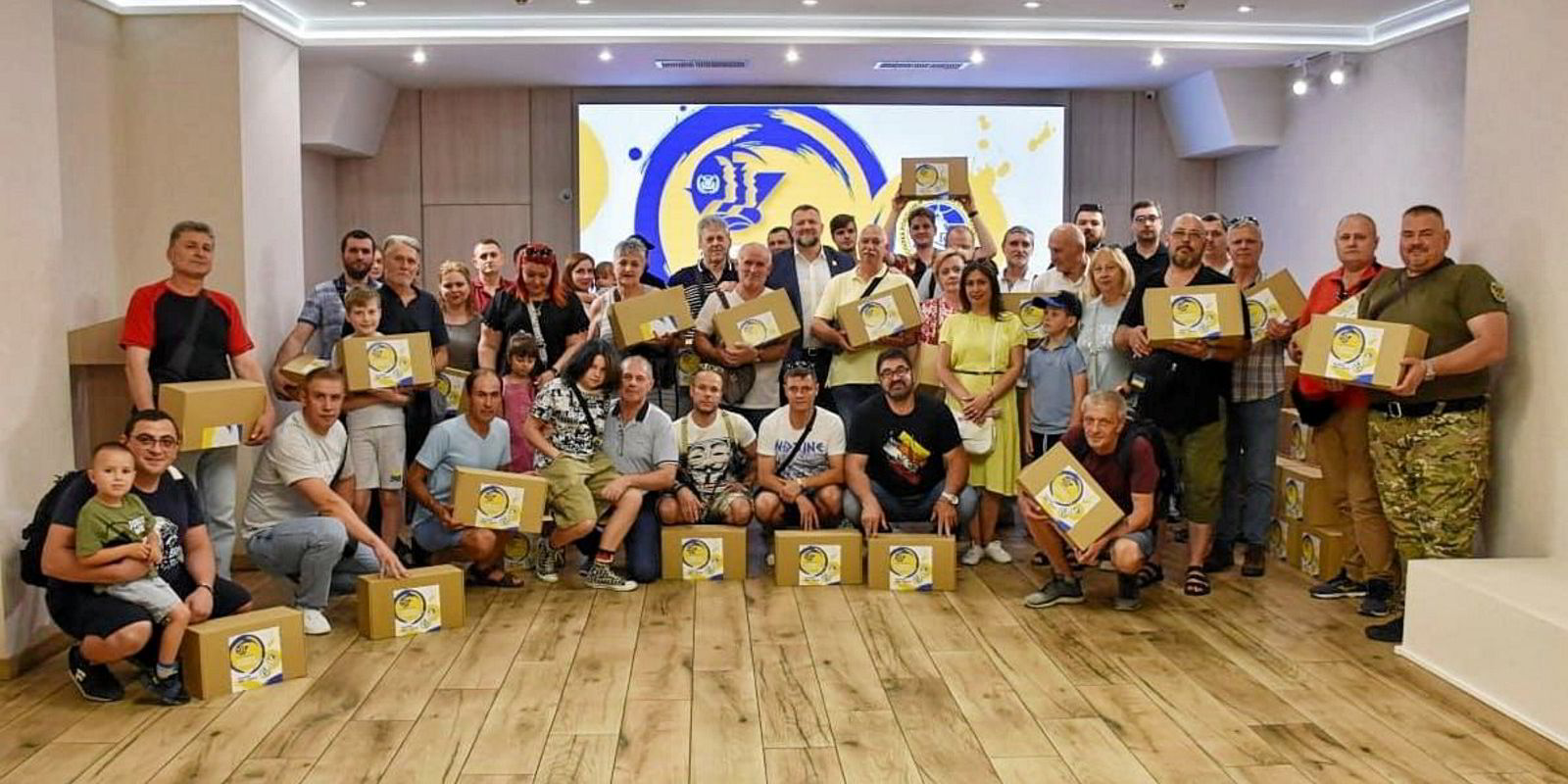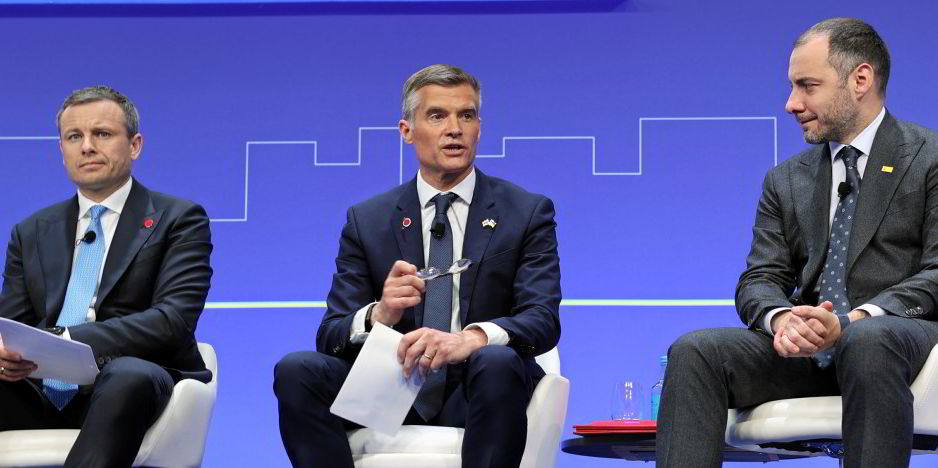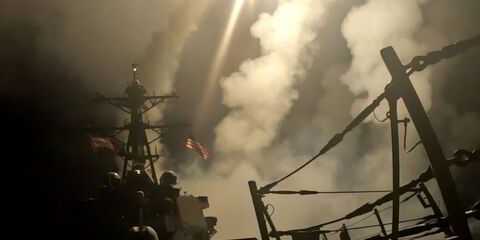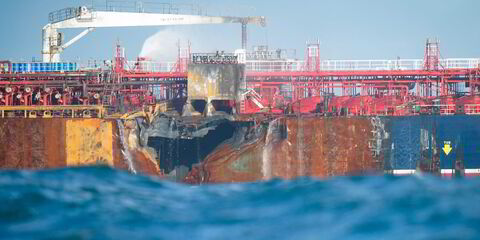Dozens of Ukrainian cadets are due to graduate on Wednesday from their temporary academic home in Lithuania as the domestic industry scrambles to train new talent despite the restrictions of war.
After difficult years of pandemic and war, the group of 66 will receive their rewards from the Lithuanian Maritime Academy in Klaipeda, which has taken batches of students whose studies were interrupted by Russia’s invasion in February.
They include Andrew Udovichenko who left Kherson State Maritime Academy (KSMA) in the key strategic Black Sea port city on the day of the invasion and headed with his family to western Ukraine to continue his studies via distance learning.
He was one of a group who received special dispensation to complete his studies outside of Ukraine, where men aged 18 to 60 face travel restrictions because of potential conscription.
Udovichenko, whose goal is to become a chief engineer, is now seeking work. “I will not take part in the war, but I will try to help my country financially,” he said. “I will work, develop, improve my qualifications, and of course, I would like to return home to Ukraine.”
Udovichenko’s dislocated studies highlight the difficulties of training seafarers in Ukraine where some of the key maritime centres, such as Kherson and Odesa, have been hard hit by the war.
The Marine Transport Workers’ Trade Union of Ukraine (MTWTU) said that appeals from its members for financial support have quadrupled to 4,000 since the invasion. Some of its members have been left homeless following the destruction of the Kakhovka Dam in Kherson province earlier this month.
The union is distributing 700 packages of food and other aid for the annual Day of the Seafarer across Ukraine, said chairman Oleg Grygoriuk. The country has an estimated 80,000 seafarers with about 85% to 90% outside of the country, he said.

“The government is not capable now of providing decent financial assistance to seafarers,” he said. “So we're taking this role to support our members.”
Air raids
Half of the packages will be distributed from its offices in Odesa, where staff are forced to retreat to the car park in the basement when the air raid warnings sound.
The Odesa office of crew manager Danica was damaged in a Russian rocket attack earlier this month. Staff are working from home.
KSMA has relocated its headquarters from Russian-controlled Kherson to Odesa and is conducting its courses via online distance learning. Cadets in Ukraine have been unable to complete sea training and have been forced to seek alternative experience on rivers and the domestic trade.
Ukraine contributes some 4% of the seafarers to the global maritime workforce of 1.89m, according to a 2021 reporter by shipowner groups Bimco and the International Chamber of Shipping. The majority of them are trained officers, an area where current labour shortages are most acutely felt.
Some of the cadets graduating have already been taken on by Cyprus-based Marlow Navigation, a crew manager for 1,050 ships with clients predominantly in Germany, Netherlands, Greece and Turkey.
It has taken 120 cadets a year from KSMA for years but those numbers have been reduced owing to the war. It has about 115 Ukrainian cadets signed up who have completed their studies at Klaipeda over a period of 18 months.

“They are all future officers and engineers,” said Joern Clodius, the company’s training director. “We take those with a career goal of becoming an officer as soon as possible.”
He said the company will continue to take 60 to 70 students a year directly from Ukrainian training centres, despite the problems with putting the cadets through practical onboard training.
The MTWTU union runs training programmes using virtual reality headsets at its headquarters and the UK government last week promised to supply more of the units as part of a programme of aid promised at a London reconstruction conference.
“We’re aware they will need a bit more supervision during onboard training,” said Clodius. “We will be able to overcome that but I’m sorry to say it cannot be a long-term solution.”
The training of Ukrainians in Lithuania, organised by the MTWTU and the International Transport Federation’s Seafarers’ Trust, will run at a lower-level next year with adult seafarer cadets unable to leave the country because of further travel restrictions imposed by Ukraine.
Grygoriuk said about 10 cadets, all aged under 18 and not subject to a travel ban, will be chosen later this summer for the first year of their courses.(Copyright)




